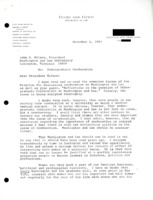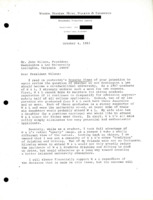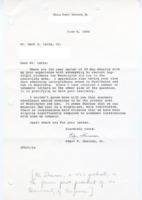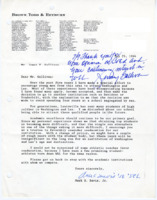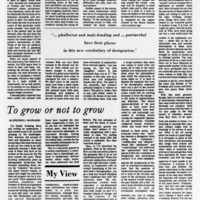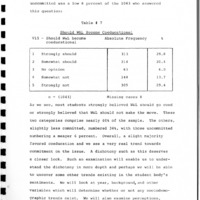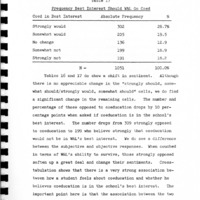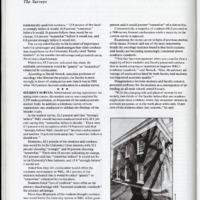Alumni:
During the crucial period from 1980 to 1984, alumni voices at Washington and Lee University overwhelmingly supported the shift towards coeducation. Russell Hewit '74, '77L wrote a letter to President Wilson emphasizing strong endorsement for coeducation, citing its potential to enhance education quality, foster diversity, and inclusivity, and attract top-tier students and faculty. Hewit countered common objections and urged President Wilson to spearhead the university's transformation into a coeducational institution, stating it was the right decision for the university's best interests. Arom Clinton Morse '67 also communicated his support for coeducation, highlighting the enthusiasm his daughters had for attending a coed W&L. He emphasized that this change would positively impact the school's image, traditions, and competitiveness in admissions by broadening the applicant pool. Edgar Shannon, an alumnus and former UVA president, voiced his backing for admitting women, underscoring how this move aligns with the university's pursuit of academic excellence and its ability to compete effectively with peer institutions. Mark Davis articulated his rationale for supporting coeducation by acknowledging the initial challenges but emphasizing its long-term benefits. He noted how remaining single-sex limited the applicant pool, driving away high-caliber students and athletes, ultimately positioning competitor schools like Davidson and Vanderbilt more advantageously. Overall, alumni echoed resounding support for coeducation, highlighting its manifold advantages and urging the university to embrace this change for its future success.
